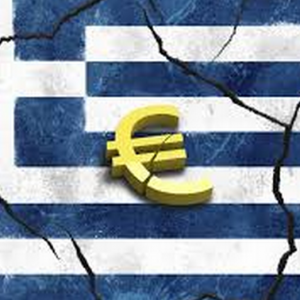Originally published by ANewDomain.net:
The votes are in. Greece has handed a resounding rebuke to austerity measures imposed by the world banking community and the European Union (EU) in Sunday’s much-anticipated referendum.
The six-month old socialist government of Alexis Tsipras was careful to emphasize that this vote, which he campaigned for against the express wishes of the leaders of other European nations, does not mean an end to negotiations with the International Monetary Fund, the European Central Bank, or the European Union. But the vote certainly strengthens the Prime Minister’s hand in those talks.

But most of all, however, the prospective Grexit is about the morality of debt, and the perception of who holds the power in the debtor-debtee relationship.
Germany, which dominates the European Central Bank (their version of the Fed), has relentlessly insisted that Greece and the other struggling southern European states slash their social safety nets to fiscal solvency, or at least euro compatibility. This, as Krugman and others predicted, proved counterproductive. With Greek unemployment over 25% and underemployment many times higher than that, spending has all but ceased, replaced by a barter economy in many places. The less government aid there is, the less people spend, the less businesses earn, the more people they lay off. It’s an austerity death spiral.
Germany’s Angela Merkel has couched this as a simple matter of reckless Greeks having gone on a spending spree that they must now pay for, and many of her fellow Germans agree with her. Greece, you see, is not a “virtuous” economy. Not like Germany.
Which may or may not be true.
What is true is that Merkel, like many Protestants of her ilk, fails to recognize that people who are owed money are not automatically dominant over those who owe it. Default hurts the deadbeat — but it also hurts the schmuck holding the now-worthless IOU. It is important, therefore, for lenders not to push borrowers too far…which is exactly what has happened in Greece.
Regardless of where you stand on this (pardon me) Greek tragedy (or farce), there is a detail that galls many Greeks, yet which has remained largely unreported by the American business press.
“Greece owes various European bodies a combined 240 billion euros across two bailouts extended by the International Monetary Fund, the European Commission, and the European Central Bank,” The Christian Science Monitor reported three months ago.
 But Germany destroyed massive amounts of infrastructure during World War II — and looted the nation’s Treasury. The Greek government estimates that Germany owes it 279 billion euros for the damage.
But Germany destroyed massive amounts of infrastructure during World War II — and looted the nation’s Treasury. The Greek government estimates that Germany owes it 279 billion euros for the damage.
Greece doesn’t have a legal leg to stand on. But the morals, and the optics … yeah, those play well in a country where history isn’t an abstraction — it’s the main tourist attraction.
Unlike the Western financial media, Greeks remember the 1953 London Agreement, under which West Germany was forgiven massive amounts of debts it owed to foreign nations — including Greece — in order to allow it get its economy going again without a crippling debt burden.
Germany benefited from international largesse, but now that it enjoys a dominant role in the world again, it’s playing the hardass. The Greek vote showcases the limitations of hardassery.

2 Comments.
Unfortunately, the Nazi Germans have learned to starve people into submission without a military siege. The downside of the magic of creating money from nothing in Europe’s central bank, is that it is just as easy to turn it back into nothing. Money is only as real as the willingness to murder in its defense.
It took three tries, but Germany has figured out how to dominate Europe. It’s always about the 1% turning the masses against each other and then picking up the pieces after they beat each other silly.
In the USA’s financial meltdown, the lenders were bailed out by the masses – the 99% of regular US citizens who got to watch the value of their money devalue, lost their jobs, and for many of them, have never recovered the standard of living that they built. All of this was taken away from them to bail out the people who made the bad loans and investments. In Greece’s case, Germany, having failed twice to dominate Europe militarily, has learned to dominate it economically, will not allow this – despite the fact that they had much of their own debt forgiven so they could recover. Which scenario would have been better for the US people? Should we have let the banks, Lehmans, and etc. go bankrupt and fail? It seems that while much of the bank deposits would have been insured up to a point, many of the 1%ers would have been hit extremely hard. So what do you think would have been better or fairer to most people? Should the Government have let them fail and spent the billions on insuring the deposits in the banks and given money and loans to help much of the 99% instead? Guess what? The Democracy timed out a long time ago, and the 1% would not let that happen. In Greece’s case, it seems that the “Troika” are going to flatten this nation in order to keep the lenders from feeling any pain from having made the bad loans and investments. Just like in the US, the lenders are “unaccountable” for making the bad loans and investments, and the citizens of Greece will just have to pay for it for years and years…